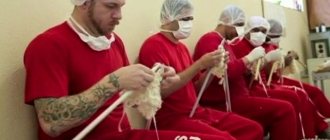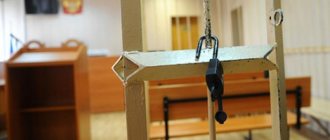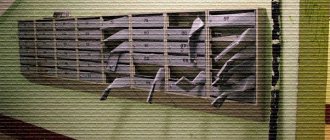Reviews and Popular
Pakhom ALL MIXED THE MIXERS
- Popular pages.
- 1. LIST OF PENITENTIAL INSTITUTIONS IN UKRAINE (253)
- 2. About the courts and judges of Ukraine (144)
- Movement (137,168 views)
- Solomyansky District Court of Kiev (85 )
- Secondary schools in Kyiv (70 )
- Primorye Partisans (70,289 views)
- Kharkiv out-of-the-way schools (65,429 views)
- P.N. Simonenko (62,107 views)
- LIST OF PENITENTIAL INSTITUTIONS IN RUSSIA (58 )
- Court of Appeal of Kiev (48 )
- List of leftist and communist parties (36)
- Gel or liquid antiseptic: which one is better for the skin?
- The US is betting on the pandemic and increased aggression against Syria
- Pros and cons of epoxy floors
- What components are added to synthetic oils?
- The secret of the “ISLAND” RUSOV. Baltic Khaganate of Rus.
- Nikolai Semenovich Klestov-Angarsky
- Edged boards: how to choose suitable lumber?
- President of Nicaragua to American Ambassador: If you want to sell candidates, you can sell them to the USA!
- Classification of automobile parts by origin
- Communism vs. democracy? "Electoral" ideological equations
- When can you better manage the land?
- Mexico's president blames the IMF for the world's economic and social decline
- Statistics
Regime, contingent, conditions
The Chusovsky district, on whose territory IK-10 is located, is located in the east of the Perm Territory and is considered a pretty wilderness. It is no coincidence that it was here, in the harsh climate, that in Soviet times zones for the most inveterate criminals were built.
In Soviet times, IK-10 in Vsesvyatskaya was one of the largest maximum security colonies not only in the Perm region, but throughout the entire Union. Today, the number of prisoners in the “ten” has decreased somewhat, but the zone still remains one of the largest in the region. The occupancy limit is 2,292 places, including a colony-settlement site for 100 places.
Today the colony has the status of a maximum security institution. This means that those convicted of especially serious crimes, as well as repeat offenders, sit on the “ten”. A significant part of the contingent are prisoners from among the residents of the Perm region, however, prisoners from more distant places are also sitting in the zone
Vsesvyatsky men's correctional colony No. 10 of the Chusovsky district is known for the fact that on its territory there is one of the largest industrial zones in the entire system of the Federal Penitentiary Service of Russia. For the work of prisoners, large workshops, utility rooms, a warehouse complex, and access roads were built here back in Soviet times. Among the enterprises cooperating with the zone were the Aleksandrovsky Machine-Building Plant, the Chusovsky Metallurgical Plant and others. The list of products manufactured at IR includes more than 80 items.
In addition to the industrial zone, the colony has its own logging site, where teams made up of convicts work. At the same time, the timber they harvest is not only sold as raw material, but also goes into production. The colony produces furniture, souvenirs and other goods made of wood. A vocational school has been created at the penal colony, where prisoners can obtain a profession in 6 specialties. For those who for some reason did not have time to receive secondary education, the colony has a comprehensive school.
Living conditions in IK-10 in Chusovoy, judging by the reviews, are not the worst. There is an excellent gym, sports grounds and even separate boxing rings. The colony has its own concert venue.
Issues of parole for prisoners from IK-10 are considered by the Chusovsky City Court.
Events
Groin, in the film Marinesca “HAPPINESS IS THE GOAL” 2019
- In China, the campaign to abolish privatization and market reforms has ended
- DECLARATION IN DEFENSE OF DEMOCRACY - EN DEFENSA DE LA DEMOCRACIA
- Cuba signed the Treaty of Friendship and Cooperation in Southeast Asia ASEAN
- A dangerous outrage aimed at opening the prelude to overseas expansion
- Flowers to the Cemetery of the KPV, who provided “resistance to the USA, assistance to Korea”
- Single window for foreign investment in Cuba
- Disney's Ideological Anatomy
- Calling to creativity and ministry as writers
- The most revolutionary in the revolution must be the party
- Let everyone count on Cuba in the forefront of this battle for life
- Attention! Pandemic fatigue is visible
- The blockade is the greatest humanitarian damage inflicted on Cuba
- For Cuba we will have to give everything
- World Federation of Trade Unions stands in solidarity with Cuba
- Korean Foreign Minister congratulated his Cuban counterpart on the anniversary of relations
- 63 years after the First Peasants' Congress on Arms
- New proposals and solutions to strengthen agricultural cooperatives in Cuba
- ALBA-TCP will present a report on the crises generated by neoliberalism
- How did the Patria o Muerte Literacy Brigades come about?
- Respect each other
- An integrative approach should prevail in production chains
- Cuban Culture Minister: More than 100 artists in Mexico support the role of culture in the revolution
- There's a semiotic war going on here
- Don't invite so much...
- Assessing Cuba's potential to increase exports
- Storytelling - FIC 2021
- People are the soul of Centro Habana
- Protesters demand the release of Julian Assange
- Right on the chin of blockades and pandemics, from the Cuban anti-doping laboratory
- Saving the revolution is important, you don't rock the stage
IK-10 in Chusovoy: background information
Address: 618232, Perm region, Chusovoy, Vsesvyatsky village
Phones: (34256) 4-94-16, 4-94-57, 4-94-22, 4-94-17;
The opening hours of visiting rooms and transfers should be clarified by phone or on the official website of the institution on the Internet: https://59.fsin.su/structure/ik_10.php
The history of the maximum security zone in Chusovoy began during the harsh years of the war. At this time, persons with the status of “traitors to the Motherland”, as well as political prisoners, were kept here.
Since the first half of the 1950s, criminals of various stripes were “registered” in the colony. Inveterate recidivists and the most uncontrollable prisoners came to Chusovaya from all over the country to serve their sentences.
In subsequent years, the regime for keeping convicts in the “ten” was strengthened, and the influence of the “criminal asset” on the life of the colony decreased.
Being one of the largest colonies in the USSR, the ITC in Chusovsky became, to a large extent, a “city-forming enterprise” and over time an entire village grew up around the institution. Today the colony provides work not only for residents of Vsesvyatskaya, but also for many people from other localities.
To be slaves for 75 rubles. What you need to come to terms with in order to get parole
Radio Liberty continues to talk about slave labor in Russian correctional institutions. A prisoner of the men's penal colony-settlement No. 21 in the Perm Territory, who has several years left before his release, describes how convicts work and live here, and explains why some of them sometimes dream of being transferred to ordinary general regime colonies with formally more strict rules.
In our publications, we have repeatedly talked about slave labor in Russian penal colonies. In December 2021, the head of IK-14 in Mordovia, Yuri Kupriyanov Nadezhda Tolokonnikova served part of her sentence in this colony . Following this, the Idel.Realii project published several stories of women who were serving sentences in the same correctional institution. Impossible production standards, 16-hour working days, violence, disregard for the health of prisoners - you can read about all this in these articles on our website (, , , ) along with an interview with Tolokonnikova herself (the series of publications will be continued).
See also
“The dead were written off.” Nadezhda Tolokonnikova - about the Mordovian colonies
After one of the articles about slave labor in Mordovian IK-14, a prisoner from colony-settlement No. 21 in the Perm Territory wrote to the editors of Radio Liberty. It is located 50 kilometers from the city of Gubakha, 10 from the urban village of Ugleuralsky and 100 kilometers from Berezniki, where another Pussy Riot member, Maria Alekhina . The author of the letter complained about slave-like working and detention conditions, similar to those mentioned in the stories about the women's penitentiary-14.
Colonial settlements (CP) are considered the mildest type of real imprisonment: prisoners are allowed to leave the colony, look for work on their own (every prisoner in a CP is required to work or study), they can even live here with their family. In practice, everything is far from so rosy. Firstly, settlement colonies are divided into two main types, and the conditions of detention of prisoners in these two types of colonies are very different from each other. The first type, penal colony for those serving a sentence for the first time or those who committed a crime through negligence, has more lenient conditions - especially if the colony is located in a relatively large populated area. The second type of colony-settlement (there are many times fewer of them) is a penal colony for those who have previously served their sentences. Prisoners who have served part of their sentence in a regular general regime colony are transferred here.
In colony settlements you will not see towers with armed guards. However, the conditions of detention for prisoners here are in some ways more stringent than in general regime colonies
KP-21, where the prisoner contacted us, is one of these. It is located in the middle of dense forests in the village “10th kilometer”. The camp center appeared here in 1959 - to use the labor of prisoners in logging and to maintain the railway line along which the felled timber was exported. As follows from the historical information on the website of the Perm department of the Federal Penitentiary Service (FSIN), at that time in the village, in addition to the colony itself, there was a transit point, a brick factory, a store and a kindergarten. Both then and now, KP-21 is actually an isolated labor camp in the middle of the forest.
Despite the fact that transfer to a settlement colony is considered by the Federal Penitentiary Service as an encouragement (it is easier to be released from a penal colony on parole), sometimes these correctional institutions in reality have a much stricter regime than ordinary colonies. Svetlana Sidorkina , a lawyer for the international human rights group Agora, told Radio Liberty , the leadership of the settlement colonies takes advantage of the fact that prisoners are ready to endure almost anything for the sake of a speedy release. However, this patience also has its limits. “In my practice, there was a case when a prisoner of a colony-settlement in the Tver region deliberately violated the regime so that he would be sent back to a regular colony,” says Sidorkina.
A prisoner from colony-settlement 21 in the Perm region, who contacted our editorial office, cannot afford such luxury. In the previous colony, he constantly wrote complaints about his superiors to higher authorities and is now sure that if he returns, he will face revenge from the leadership. About six months after arriving at KP-21, our interlocutor complains about the same slave labor that flourishes in Mordovian IK-14. His salary for a working day of 9–10 hours without days off is 75 rubles per month after deducting the expenses of the Federal Penitentiary Service for the cost of food, clothing and utilities.
This man, who asked not to give his name so as not to be subject to penalties from the management of KP-21, sent us several pay slips - his own and those of other prisoners. The amounts vary from 75 to 400 rubles and depend on the number of hours worked, although in fact, he says, almost all prisoners work seven days a week and after school hours - if the authorities need it. 75 rubles a month is not a record for the Federal Penitentiary Service. “Sometimes I got 29 rubles,” Nadezhda Tolokonnikova told Radio Liberty. This is common, although it is illegal, of course, to deduct so much. They have the right to deduct under the Criminal Code (Criminal Executive Code - RS note), but the maintenance costs are not so high.”
Bad reviews about colony-settlement No. 21 can also be found on the forums of relatives of prisoners. Here's just one of them:
“The city of Gubakha, the village of the 10th kilometer, God forbid someone ends up there. Girls, I’ve been reading you for three days, I accidentally came to the forum... I understand very little about this, but I know it first-hand. Mine is sitting in a really high security settlement, from there the prisoners who are released from the general population are trying to get back by all means. It’s absolute hell there, I visited him twice for a DS (long date – RS note), I didn’t recognize him. They plow there like horses for 11 hours straight and seven days a week, and you can’t even sit down for the slightest offense - for example, you smoked in the wrong place and the young cop doesn’t like it - in the punishment cell (punishment cell - Note RS). There’s a lot of things that can’t be told right away… but as for parole and no hope, even without penalties…. The cops checked the DS 20 times a day (and night), and they were also rude.”
This description matches what one of the prisoners at KP-21 told us over the phone. Our interlocutor served more than 5 years in a general regime colony for robbery. Now he only has a few years left to serve in prison, but this man expects to be released on parole in July-August 2021.
“I was transferred in the fall from a regular colony. I thought it would be easier, but if you compare it with [names the region from where he was transferred to the Perm Territory], it was more civilized there, at least some laws were observed. I came here and they didn’t give me any work clothes, or even bed linen, although I think the money is all written off for that. What I brought was what I went to work with. Okay, I still had my own, but sometimes people come and they have nothing at all. It is not customary to give anything away here. We dismantle old houses, unload potatoes, all this every day, no matter - rain, snow, weekend. There are no days off here at all. Sunday is not considered a day off, let alone Saturday. All days are working days.
Sunday is not considered a day off, let alone Saturday
– Have you been given a day off at least once since the fall?
- What for? Who will work then?
– How many hours does the working day last?
– From 8 am to evening. Right now, for example, there is a blizzard, snow. In the morning we left at about 7 o'clock and went to clear the snow. They cleared the snow, came, had lunch, and went back to clearing. The car arrived, which needs to be unloaded, so let’s go again. The main load is until 5 pm, but even later some car may arrive, for example, with groceries. It was autumn: a car arrived with 20 tons of potatoes. It doesn't matter that you worked all day. Everyone again goes to unload, like real slaves.
– How much do they pay for such work?
– The first time, in the fall, when I arrived, I received 80 rubles. And so since then. Everyone else too.
– What can you buy in the settlement with this money?
- A pack of cigarettes.
– How do people live on this money?
- Someone is receiving transmissions. But the majority of people who have no one live like this. The way they used to live, in Soviet times, in such places, is the way they live now.
Colony-settlement, Volgograd region
- What else do you do for this salary?
- All housekeeping work. Remove, wash.
– Is there another job in the village?
– 40 of our settlers work for the “private owner”: they collect pallets, saw them themselves, and pack them themselves. Their salary is on average 900 rubles or a little more, but they work very hard. The “private trader” pays money for each convicted person to the colony authorities. How many - I don’t know about this, but the authorities are very interested in this object, because people are sent there to work in the first place. There is also a depot: this is where cars are loaded and cleaned after unloading. Our settlers also work there, about 10 people, they are taken there every day in a company car. They also work for a “private owner”, also for pennies. As far as I know, if we work, we should all receive the minimum wage according to the law, which in the Russian Federation averages 11 thousand rubles. But in this colony, as far as I know, the minimum wage out of 140 people receives no more than 20. All the rest work as they have to and live on what God sends.
– Is it considered lucky for you to get a job for 900 rubles a month?
- No. Firstly, they work from morning to night. Everything was done by hand, with hammers in hand, and there were a lot of injuries.
– Did any of the prisoners try to complain?
Here it’s easy to put pressure on the fact that they can be sent back to the colony
- This is a colony-settlement. Here it is easy to put pressure on the fact that they can be sent back to the colony where you came from. They manipulate people. Why do people come here? To free yourself faster. And those who start to complain can easily be put in isolation and sent back.
– Have there been such cases since the fall, when you moved here?
– They were as if they weren’t. That's why the rest sit silently.
– Not everyone has the same health and age. Do they give concessions to those who are weaker?
– Yes, they can give you easier work, but also for the whole day. There is no way to sit and relax.
– If you get sick or injured, what should you do?
– There is a medical center, but they have almost no medicine. They don't give exemptions either. They will say: write an explanatory note. And no one wants to write explanatory notes so that a violation is not given. Still, here they want to be released on parole. Therefore, whether you want it or not, the sick, the oblique, the lame, you have to work.
It’s like this: either you walk or you lie down
- With a work schedule of 7 days a week, and even considering the hard physical work, health problems simply cannot but arise.
“If it’s something really serious, they’ll take you to the hospital.” There was an incident at a woodworking factory recently. They pound these pallets with their hands all day long, until their legs give way. Our driver worked transporting timber, and recently he was also taken away with pneumonia. No examinations, nothing. It’s like this: either you walk or you lie down.
And this is how the FSIN administration in the Perm Territory boasts about the results of the labor of prisoners:
– Do the colony authorities involve prisoners in work for their own personal interests, as often happens in Russia?
– It’s still winter, so nothing special is visible yet. And so - of course. Here as everywhere else. They have their own areas where they need to dig. Or, for example, to repair a car - they bring it, drive it into our garages, and we repair it. Such household things.
– Do they pay any extra money for this?
– Who will come to an agreement, as elsewhere.
– When do you expect to be released?
– I planned it in the summer.
– When you get out, do you plan to file formal complaints somewhere?
The whole region here is so unique
- Certainly. Why not? I left [names the region where the previous colony was located] in the fall; I worked there for 4 years in a canteen. From 6 am to 8 pm. Here, in terms of complaints, my hands are a little more untied; I have already contacted the prosecutor’s office, the labor inspectorate, and complained about the overtime there. I was also in that colony for 4 years without days off. I wrote to the inspectorate that they can check, request cameras that record everything, that every day for 4 years in a row I went to work from 6 am to 8 pm without days off and without vacations. It’s just that while I was there, they wouldn’t let me file a complaint or write against them. And now I’ve left there and tried, we’ll see.
– You won’t complain to the leadership of the colony-settlement yet?
- What for? While you are here, you will not be allowed to fully engage with such issues.
– What do convicts who have been sitting in this checkpoint for a long time say? Has it always been this way?
– The whole region here is so unique. And the laws are so harsh. For me, this is wild, what I encountered here.
The human rights organization “Zone of Law” has already become interested in the situation in colony-settlement No. 21, having received about 10 complaints about forced labor from current and former prisoners of IK-14. “For four of them, we have already appealed to the Investigative Committee with a request to recognize the authors of the complaints as victims in a criminal case. Regarding the rest, including Nadezhda Tolokonnikova, relevant statements will be sent in the coming days,” says organization coordinator Bulat Mukhamedzhanov . “We are sure that slave labor conditions, in particular night work and meager wages, are characteristic not only of the Mordovian colonies. Therefore, if we receive information from victims, we are ready to work in other regions.”








